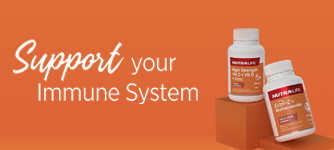There’s no argument that physical and cognitive exercise can benefit your mental ability. However, why stop there? Just like topping up your car with a specific type of fuel for the best performance, you should feed your body with the appropriate foods for optimum functioning.
Part of preventing the risks of certain health conditions is to maintain your body’s wellbeing in the best way possible. A balanced diet is crucial for everyday living and has been proven to improve heart health. There are also specific foods to incorporate into your daily intake to help boost your memory for improved brain function.
These foods are easily accessible and tasty, and have been shown to reduce risks for memory impairment conditions, such as Alzheimer’s disease.
Fruits and vegetables
Without a doubt, fruits and vegetables are beneficial to your diet and lifestyle. They come complete with essential vitamins, nutrients and a high water content.
Apples have even been found to reverse memory loss. The consumption of apple juice reduces oxidative stress in your system. Oxidative stress contributes to a decline in cognitive function and also prevents an excess of the betaamyloid protein, which is a classic mark of Alzheimer’s disease.
Researchers from Heinrich‐Heine University have found an association between high intakes of fruits and vegetables and better cognitive performance.
Antioxidant levels also increased due to this healthy diet, and helped the body protect against free radicals ‐ damages to human cells that can occur naturally during metabolism, but can be prevented with antioxidants.
Broccoli, kale and kiwifruits are among this group with high levels of vitamin C, which is a common antioxidant and has a wealth of health benefits for your whole body, not just your brain.
Berries
Even though berries belong in the above group, they deserve a special menᴄon due to their extremely healthy properties. A study published in the Annals of Neurology has found that there is a correlation between intake of berries and brain function. The study, spanning four years, monitored the long‐term diet of participants. It was noted that those who ate high levels of blueberries and strawberries had a reduced rate of cognitive decline.
These berries also contain antioxidants, and blueberries especially, contain anti‐aging properties so that you look better while boosting your brain performance.
Eggs
Eggs contain essential amino acids, which are the building blocks of protein. Protein helps to reduce your appetite to keep you fuller for longer. Eggs are also low in calories and thus, a great addition in your diet to help you maintain a healthy weight. There have been studies showing an association between excess weight and a higher chance of neurological conditions.
An article in the American Journal of Clinical Nutrition has found that people who consume more choline, a nutrient found in egg yolks, performed better in cognitive ability tests. Both verbal and visual memory levels were higher than those that consumed fewer eggs in their diet.
Caffeine
The Harvard School of Public Health has found that moderate consumption of caffeine through the form of coffee can reduce the risk of neurological conditions. Three to five cups are the recommended moderate dose. Not only a sharper memory, caffeine can also reduce the chances of early mortality from neurological and physiological conditions. The National Cancer Institute has found that those that drink only one coffee a day reduce their chances by five per cent. You can live a longer and healthier life with a sharper memory.
Nuts
Nuts contain high levels of healthy, unsaturated fats. Walnuts, in particular, have been associated with better heart health and lower cholesterol levels. They contain vitamin E, melatonin, omega‐3 fatty acids and antioxidants ‐ all neuroprotective compounds. Walnuts also reduce the buildup of proteins in the brain that can affect cognitive function.
Vitamin E can be used for an abundance of health conditions, including the brain and nervous system. It is also an antioxidant, and along with melatonin, has roles in cancer prevention.
Cashews are another great nut to consume. They contain the mineral magnesium, which helps to protect against age‐related memory loss.
Fish
Many types of fatty fish contain Omega‐3 fatty acids. This is a good form of fat that the body cannot produce on its own, and only obtains through foods. Salmon and tuna are particularly high in levels of Omega‐3.
The University of Maryland Medical Centre explains that Omega‐3 is highly concentrated in the human brain, and can help with cognitive and behavioural performance, as well as vision, heart conditions, dry skin and fatigue.
The American Heart Association recommends a consumption of two servings of fish every week.
Better living, better eating, better brain
Each and every one of these foods are common grocery items, and won’t break the bank to improve your brain function. Of course, there is no single nutrient that will benefit your health on its own, so mix things up occasionally and consume a moderate amount of these foods each day.
Another great fact about healthy eating is that it won’t just improve your cognitive ability, but also positively affect your heart health, metabolic system and overall wellbeing.










